THURSDAY, OCTOBER 1ST
09.00 – 11.00
The conference will also be available in streaming
#Smart Port & Logistics
Logistics efficiency is based on two pillars: physical infrastructures and the exchange of information and documents. On both counts, digital technologies are in full development. Among other things, the reduction of human intervention in presence is key to improve the resilience of port and logistics infrastructures. The movement of goods is increasingly trending towards the expansion of automation, with its most advanced point represented by autonomous robotics. The speed in the physical management of the flows would not, however, serve without a parallel streamlining in the exchange of information, which allows for the development of “fast corridors” of customs clearance that can also be applied to certain goods or destinations. The same technologies also allow to monitor the status and position of goods in real time, with a wealth of data that goes far beyond simple traceability. A panel will be dedicated to the generation and storage of energy in ports at the service of cold ironing, and a focus to the recent trend of synthetic carbon-neutral and carbon-free fuel using sea-based renawble energy sources.
MAIN TOPICS
-
Renewal and competitiviness of port and logistical infrastructures
-
Automation in freight transport
-
Automatic retro-port warehouses
-
Digitization in the exchange of transport documents
-
New interoperability code for port customs system
-
Fast corridors
-
IoT solutions for intramodality, traceability and monitoring of the integrity and quality of goods
-
Distributed generation and energy storage in ports
-
Cold ironing
DETAILS
Chairman: Domenico de Crescenzo, Fedespedi Vice-president and Confetra Mezzogiorno Coordinator
Campania’s ports: trade development and the synergy with the economy and manufacturing industries of the region
Pietro Spirito, President, Autorità di Sistema Portuale del Tirreno Centrale
EU strategy for transportation: linking logistaical areas and ports with national road and rail networks
Giovanni Infante, Responsabile di Linea d’Intervento porti, interporti, aeroporti e settore della logistica, Ministero delle Infrastrutture e dei Trasporti
Hinterland Transport Planning – In a perfect world
Mark Scheerlinck, President, Propeller Club Port Antwerp
PortForward: towards a smart innovation for the EU Port of the Future
Olaf Poenicke, Fraunhofer Institute for Factory Operation and Automation IFF
Title TBD
Alberto Pozzobon, AdSP del Mar Ligure Occidentale
Port assessment
speech by IMAT
PMIS evolution in the European Maritime Single Window Environment framework
Maurizio Vitale, Guardia Costiera – Capitaneria di Porto, Rep. VII
The Single Center for Goods Services in Santo Stefano di Magra
Francesco Di Sarcina, General Secretary, Autorità di Sistema Portuale del Mar Ligure Orientale
Smart Terminal & I-Rail & Port-Tracking: integrated customs and port processes
Laura Castellani, Director of Organization Management and Digital Transformation, Agenzia delle dogane e dei monopoli
Title TBD
Alessandro Pitto, President, Spediporto
Use of Energy Storage to reduce Shore Connection impact on Port Infrastructure
Luca Imperiali, Global Product Manager Marine & Ports Division, ABB SpA
EU ports roadmap towards decarbonization. The next steps
Stefano de Marco, General Manager – Sales – Market Innovation, Wärtsilä Italia S.p.A.
Data Driven Management: a new approach for Port Authorities
Marco Ferretti, President, MAR.TE. Sea-Land Logistics
Tarros Group: Logistics Solutions since 1828
Mauro Solinas, Corporate Brand Manager, Gruppo Tarros
Energy sustainability within the port area and the use of alternative energy in respect of the fossil fuels
Francesco Ivano Benedetto, Capitano di Corvetta (CP), Direzione Marittima della Puglia e della Basilicata Jonica
Antonio Cacciatore, Capitano di Fregata (CP), Direzione Marittima della Sicilia Occidentale

